- Home
- About WVN
-
WVN Issues
- Vol. 1 No. 1 (Oct. 2017) >
- Vol. 2 No. 1 (Feb. 2018) >
- Vol. 2 No. 2 (Jun. 2018) >
- Vol. 2 No. 3 (Oct. 2018) >
- Vol. 3 No. 1 (Feb. 2019) >
- Vol. 3 No. 2 (Jun. 2019) >
- Vol. 3 No. 3 (Oct. 2019) >
- Vol. 4 No. 1 (Feb. 2020) >
- Vol. 4 No. 2 (Jun. 2020) >
- Vol. 4 No. 3 (Oct. 2020) >
- Vol. 5 No. 1 (Feb. 2021) >
- Vol. 5 No. 2 (Jun. 2021) >
- Vol. 5 No. 3 (Oct. 2021) >
- Vol. 6 No. 1 (Feb. 2022) >
- Vol. 6 No. 2 (Jun. 2022) >
- Vol. 6 No. 3 (Oct. 2022) >
- Vol. 7 No. 1 (Feb. 2023) >
- Vol. 7 No. 2 (Jun. 2023) >
- Vol. 7 No. 3 (Oct. 2023) >
- Vol. 8 No. 1 (Feb. 2024) >
-
Events
- CIES 2023, Feb. 14-22, Washington D.C., USA
- ICES 4th National Conference, Tel Aviv University, Israel, 20 June 2021
- 2022 Virtual Conference of CESHK, 18-19 March 2022
- ISCEST Nigeria 7th Annual International Conference, 30 Nov.-3 Dec. 2020
- 3rd WCCES Symposium (Virtually through Zoom) 25-27 Nov. 2020
- CESA 12th Biennial Conference, Kathmandu, Nepal, 26-28 Sept. 2020
- CESI 10th International Conference, New Delhi, India, 9-11 Dec. 2019
- SOMEC Forum, Mexico City, 13 Nov. 2018
- WCCES Symposium, Geneva, 14-15 Jan. 2019
- 54th EC Meeting, Geneva, Switzerland, 14 Jan. 2019
- XVII World Congress of Comparative Education Societies, Cancún, Mexico, 20-24 May 2019
- ISCEST Nigeria 5th Annual Conference, 3-6 Dec. 2018
- CESI 9th International Conference, Vadodara, India, 14-16 Dec. 2018
- ICES 3rd National Conference, Ben-Gurion University, Israel, 17 Jan. 2019
- WCCES Retreat & EC Meeting, Johannesburg, 20-21 June 2018
- WCCES Symposium, Johannesburg, 21-22 June 2018
- 5th IOCES International Conference, 21-22 June 2018
- International Research Symposium, Sonepat, India, 11-12 Dec. 2017
- WCCES Info Session & Launch of Online Course on Practicing Nonviolence at CIES, 29 March 2018
- WCCES Leadership Meeting at CIES, 28 March 2018
- 52nd EC Meeting of WCCES, France, 10-11 Oct. 2017
- UIA Round Table Asia Pacific, Chiang Mai, Thailand, 21-22 Sept. 2017
- Online Courses
|
Abstract During the Covid-19 pandemic, the teacher had more time for professional development and the opportunity to peruse many online learning opportunities. But their time seemed to be unproductive due to a lack of proper motivation. Professional development includes all types of learning opportunities such as academic degrees, conferences, non-formal learning opportunities, teaching sessions and communities of practice, guidance, technical assistance, lesson study, and supervision. This study was on teachers’ participation in the activities relevant to their professional development and to improve the motivation of teachers on their professional development during the covid-19 pandemic. 62 teachers were involved in the intervention and there were 7 sessions on effective discussions, innovative activities, and videos. The method used was action research. The teachers had been involved with 7 assignments in the study and the assignments were different from one to another. When they were engaging in their assignments, they had to reflect on their own experiences with students and the learning environment which they designed for their students. Especially in this Covid-19 pandemic situation, students have to join online teaching-learning processes and teachers have to adapt to online technology as well. Most of the teachers were young and they expressed their views on the importance of professional development in acquiring modern online practices as teachers. Formative and summative assessments were used on them and they were very happy with their high achievement for an authentic learning experience, persuading a change in teacher education on a school-based professional teacher development program in Sri Lanka. Keywords: Motivation, School Based Professional Teacher Development Program, New Learning opportunities Introduction To ensure training for new qualified teachers of all the levels of education to better respond to new learning opportunities, the school based professional teacher development program in Sri Lanka should change according to the global educational trends in uncertain future. Professional development of teachers can be defined using by various literally. It is defined as activities that develop an individual’s skills, knowledge, expertise and other characteristics as a teacher (UNISCO,2022). The definition recognizes that development can be provided in many ways, ranging from the formal to the informal. Professional development refers to continuing education and career training after a person has entered the workforce to help them develop new skills, stay up-to-date on current trends, and advance their career (Aggarwal, 1994). When considering the professional development of a teacher, teachers have to involve in continuing education because teacher quality has a great influence on student achievement, teacher’s professional development receives a lot of attention in educational policy. Although teachers need professional development, their interest in it has decreased due to a lack of proper motivation and other factors. The teachers have massive barriers to having opportunities for professional development due to the current socio-economic downturn in Sri Lanka and the COVID-19 epidemic situation. In this situation, having discussions with the principal of the school, a need analysis was conducted and many young teachers who were not focused on professional development could be identified. Thereafter a series of programs were launched under teacher professional development programs, the main purpose of which was to motivate teachers for their professional development. This study was conducted as action research and close intervention was done to develop teachers’ views on their lessons. Special emphasis was given to finding a way to incorporate community service into one of their lessons and discussed how teachers contribute to the community they live in. Students were asked to tell how their teachers could perform community service as a group. Many schools allocated students a certain amount of time off if they are doing an activity that falls into this category. Assessed if a teacher can organize a community service event for their class. There are lots of challenges to running an effective teacher professional development session: time, money, engagement and effectiveness. While the challenges may be daunting, they shouldn’t stop you from creating opportunities for your teachers to deepen their understanding. In most countries at present, trends of investigating teacher development needs of the school for professional teacher development and using varied methodologies to fulfill such needs are seen. National Education Commission recommends the School Based Teacher Development Methodology as productive for continuous development process of teachers in Sri Lanka. (National Education Commission – 2010). Amidst the multiple approaches followed in teacher education, SBPTD is a unique and more pragmatic process. Its major target is to make each teacher a skilled professional in the profession of teaching. The said practice is a continuous teacher development process planned by the school itself and implemented collectively How is SBPTD established in the school? It is already clear to you that the continuous professional teacher development is essential, and it needs to be a school-based process. As stated by the Circular No.26/2018 of the Ministry of Education, the Instruction Manual and Circular on Planning & Procurement for School Based Qualitative, Quantitative and Structural Development have instructed to implement this as a prime responsibility for the development of school based management concept (school improvement program) through the school development plan. Methodology This study was on teachers’ participation in activities relevant to their professional development. The study aimed to improve the motivation of teachers in their professional development during the covid-19 pandemic. 62 teachers were involved in the intervention and there were 7 sessions on effective discussions, innovative activities, and videos. The method was action research. The teachers had been involved with 7 assignments on improving motivation in the professional development of themselves engaging in different assignments. There were five main steps in the process as mentioned below.
The intervention of the action research Teachers' self-efficacy, namely teachers' beliefs in their ability to effectively handle the tasks, obligations, and challenges related to their professional activity, plays a key role in influencing important academic outcomes (e.g., students' achievement and motivation) and well-being in the working environment. Teacher efficacy is strengthened when teachers observe effective instruction by their peers. It is particularly effective if teachers can observe peers with a similar level of experience and proficiency. The program contained seven main sessions and each one was designed using the analyzed data on the special questionnaire which was completed by all the participants. There were seven sessions comprising two-hour online events per day for seven days. Especially each teacher was motivated to emphasize that their active and positive participation in the program and the assignments were leading to their professional development. Content of the program
Session 1: Teacher role and professional development the teacher Figure 1 screenshot of zoom meeting at the 1st-day session There were 5 aims for the 1st-day session as a teacher as a role model, qualities of the role teacher’s model, who is your role model teacher, seven roles of a good teacher, and your career path. There was an active discussion on all the areas. Moreover, relevant videos and organized activities were used to engage the teachers innovatively. At the end of the session, 1st assignment was given and it was related to the qualities of the teacher role. Strategies used for motivation:
Session 2: Effective speaking and recognizing capabilities, resources, and limitations of the teacher role Figure 2 screenshot of zoom meeting at 2nd day session There were 8 aims for the 2nd-day session. They were teachers as an effective speaker, effective communication skills for teachers, how can a teacher be an effective speaker, why communication skills are important for teachers, recognizing capabilities of the teacher for better communications, recognizing resources of the teacher to communicate better, recognizing limitations of the teacher in communications, recognizing problems of the teacher for better conveying. Strategies used for motivation:
Session 3: Anger management and empathy Figure 3 screenshot of zoom meeting at a 3rd-day session There were 6 aims for the 3rd-day session on what is anger. The nature of anger, why do we get angry? Expressing anger, Factors for anger, How to temp your anger, and Managing anger with empathy. Strategies used for the motivation:
Session 4: Personality development of a teacher Figure 4 screenshot of zoom meeting at a 4th-day session There were 6 aims for the 4th-day session who is a teacher? what is personality, personality theories, what is personality development, why personality development, a few tips for charm personality, and personal development? Strategies used for motivation:
Given assignment type: The provided opportunity for submitting speech as a voice recording on how to build up an ideal personality for a teacher Session 5: Child-friendly environment and teaching aids Figure 5 screenshot of zoom meeting at a 5th-day session There were 3 aims for the 5thday session as child psychology, multiple intelligences, and the social role of the teacher. Strategies used for motivation: 1. Encourage teachers to seek out professional development opportunities. 2. Gave teachers a voice. Given assignment type: Provided opportunity to do a case study on recognizing his/her need to society, school, and students Session 6: Recognizing his/her need the society, school, and students Figure 6 screenshot of zoom meeting at the 6th-day session There were 3 aims for the 6th session of the program as the need for a teacher for the society, need of a teacher to the school and need for a teacher for the students Strategies used for motivation: Strategies used for motivation: 1. Encourage teachers to seek out professional development opportunities. 2. Gave teachers a voice. Given assignment type: Provided opportunity to do a case study on recognizing his/her need to society, school, and students Session 7: Educational practice within an active lesson plan There were 6 aims for the 7th session of the program “what is a lesson plan?”, Why is it important? The 5 Key Components of a lesson plan, how to write an outcome correctly, and Some things to ask when creating your lesson plan are? Model of the lesson plan 62 teachers were supervised on their active lesson plan with teaching practice. Once a teacher achieved a score level of 75 marks with a grade A, that teacher was mentioned as a success in educational practice but if not, every teacher had to show their progress for 75 marks with the individual feedback of the supervisor. They were motivated and encouraged to show their highest performance in teaching practice. Results Table 1 Final results- assignments of teachers Teachers have responded to 7 different assignments as an extension of their involvement. The first assignment was a report on the role of the teachers and 54 teachers responded successfully with 14 high achievements. The second assignment was a project based on problem-solving for four groups as recognizing capabilities, resources, limitations, and problems of the teacher for a better teacher role and 51 teachers responded well within 28 high achievements. The third assignment was a self-assessment of an incident that a teacher faced on empathy and 42 teachers responded with 37 high achievements. The fourth assignment was a voice cut (5 minutes) on professional development related to effective speaking of teachers and 50 teachers responded well explaining personality interestingly within 42 high achievements. The fifth assignment was a group project report on problems that children faced at school due to teachers’ misbehaving 50 teachers gathered as 4 groups and submitted successfully their solution reports with 34 high achievements. The sixth assignment was a presentation on recognizing his/her need to the society, school, and students and 48 teachers presented meaningfully within 34 high achievements. The last assignment was an active lesson plan on their subject and 51 teachers have submitted and done their lesson effectively within 39 high achievements.
Most of the teachers were young and they expressed their views on the importance of professional development and knowledge about modern ways of the teachers. I used formative and summative assessments on them and they were very happy with their high achievement for an authentic learning experience. Based on the intervention most of the young teachers registered for post-graduate diplomas and degrees and undergraduate teachers registered for their 1st degrees. Discussion The study was conducted to improve the motivation for the professional development of 62 teachers. The action research method was used and an innovative intervention was done instead of a traditional school-based professional teacher development program. The intervention process used here was enhanced with different motivational strategies which are introducing the school-based professional teacher development program. Conclusion There should be a change in teacher education in school-based professional teacher development programs in Sri Lanka, the existing program for teacher professional development should enhance in a motivational manner. References Aggarwal, J. C. (1994). Essentials of educational psychology. New Delhi: Vikas Publishing House. Creswell, J. W., Walliminjn, Purch, K. F., Wilson, E., & Buckler, S. (2012). Bundle – Eased research/Research 3ed/ Interdiction to present Methods in Education, lendanunited: SAGE Publications Ltd National Education Commission, Sri Lanka (2010). Envisioning Education for human Development proposal for a National framework on general Education in Sri Lanka' Nugegoda: Sri Lanka. STEM JOBS. (2017). The Implications of Multiple Intelligences in your Classroom. Retrieved from http://www.edu.stemjobs.com. 10 Tips for Keeping Your Teachers Motivated, Updated on March 23, 2022 Admin Leadership, Evolving Education, Teacher Insights https://www.chalk.com/resources/tips-keep-teachers-motivated/ UNESCO World Higher Education Conference 2022. https://www.unesco.org/en/higher- education/2022-world-conference
2 Comments
|
- Home
- About WVN
-
WVN Issues
- Vol. 1 No. 1 (Oct. 2017) >
- Vol. 2 No. 1 (Feb. 2018) >
- Vol. 2 No. 2 (Jun. 2018) >
- Vol. 2 No. 3 (Oct. 2018) >
- Vol. 3 No. 1 (Feb. 2019) >
- Vol. 3 No. 2 (Jun. 2019) >
- Vol. 3 No. 3 (Oct. 2019) >
- Vol. 4 No. 1 (Feb. 2020) >
- Vol. 4 No. 2 (Jun. 2020) >
- Vol. 4 No. 3 (Oct. 2020) >
- Vol. 5 No. 1 (Feb. 2021) >
- Vol. 5 No. 2 (Jun. 2021) >
- Vol. 5 No. 3 (Oct. 2021) >
- Vol. 6 No. 1 (Feb. 2022) >
- Vol. 6 No. 2 (Jun. 2022) >
- Vol. 6 No. 3 (Oct. 2022) >
- Vol. 7 No. 1 (Feb. 2023) >
- Vol. 7 No. 2 (Jun. 2023) >
- Vol. 7 No. 3 (Oct. 2023) >
- Vol. 8 No. 1 (Feb. 2024) >
-
Events
- CIES 2023, Feb. 14-22, Washington D.C., USA
- ICES 4th National Conference, Tel Aviv University, Israel, 20 June 2021
- 2022 Virtual Conference of CESHK, 18-19 March 2022
- ISCEST Nigeria 7th Annual International Conference, 30 Nov.-3 Dec. 2020
- 3rd WCCES Symposium (Virtually through Zoom) 25-27 Nov. 2020
- CESA 12th Biennial Conference, Kathmandu, Nepal, 26-28 Sept. 2020
- CESI 10th International Conference, New Delhi, India, 9-11 Dec. 2019
- SOMEC Forum, Mexico City, 13 Nov. 2018
- WCCES Symposium, Geneva, 14-15 Jan. 2019
- 54th EC Meeting, Geneva, Switzerland, 14 Jan. 2019
- XVII World Congress of Comparative Education Societies, Cancún, Mexico, 20-24 May 2019
- ISCEST Nigeria 5th Annual Conference, 3-6 Dec. 2018
- CESI 9th International Conference, Vadodara, India, 14-16 Dec. 2018
- ICES 3rd National Conference, Ben-Gurion University, Israel, 17 Jan. 2019
- WCCES Retreat & EC Meeting, Johannesburg, 20-21 June 2018
- WCCES Symposium, Johannesburg, 21-22 June 2018
- 5th IOCES International Conference, 21-22 June 2018
- International Research Symposium, Sonepat, India, 11-12 Dec. 2017
- WCCES Info Session & Launch of Online Course on Practicing Nonviolence at CIES, 29 March 2018
- WCCES Leadership Meeting at CIES, 28 March 2018
- 52nd EC Meeting of WCCES, France, 10-11 Oct. 2017
- UIA Round Table Asia Pacific, Chiang Mai, Thailand, 21-22 Sept. 2017
- Online Courses

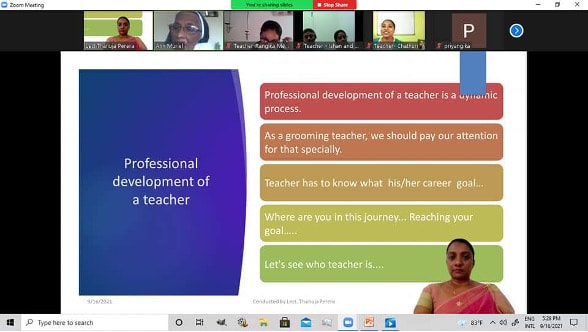
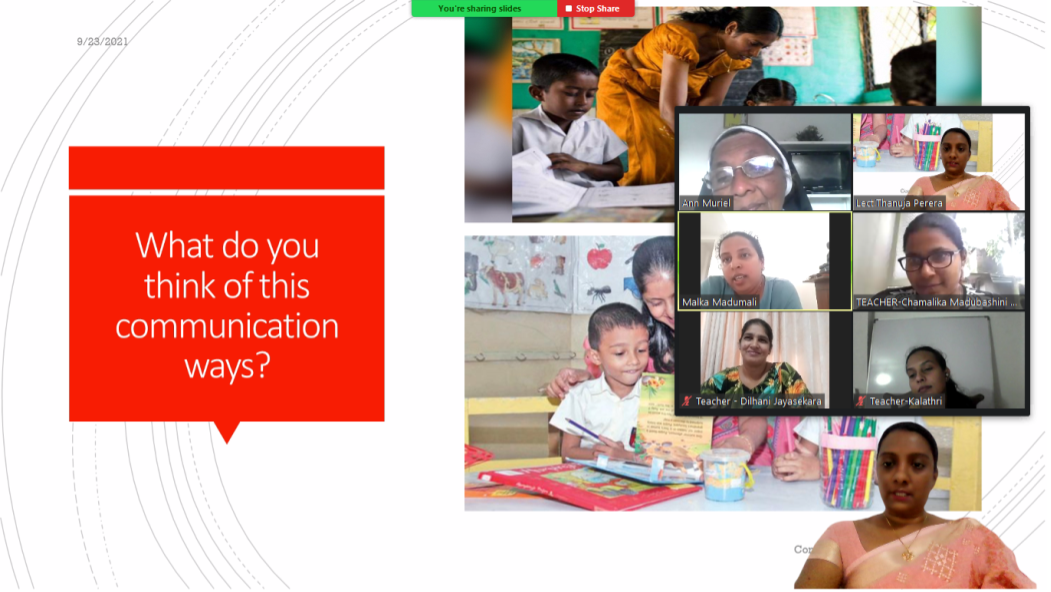
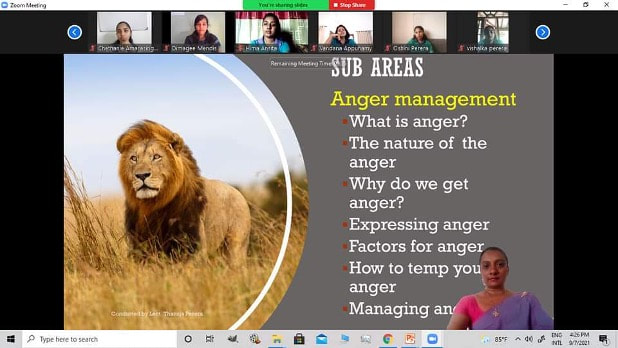
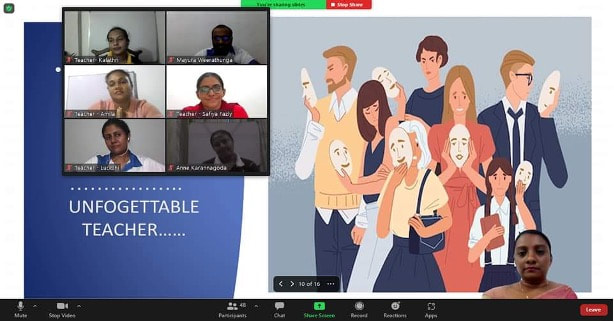
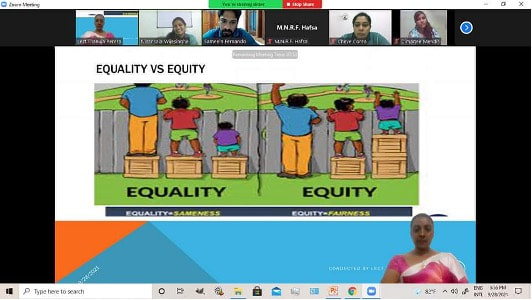
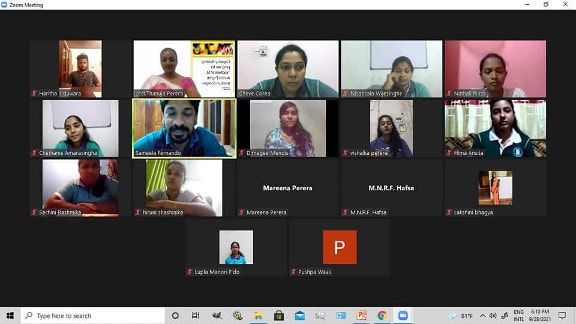
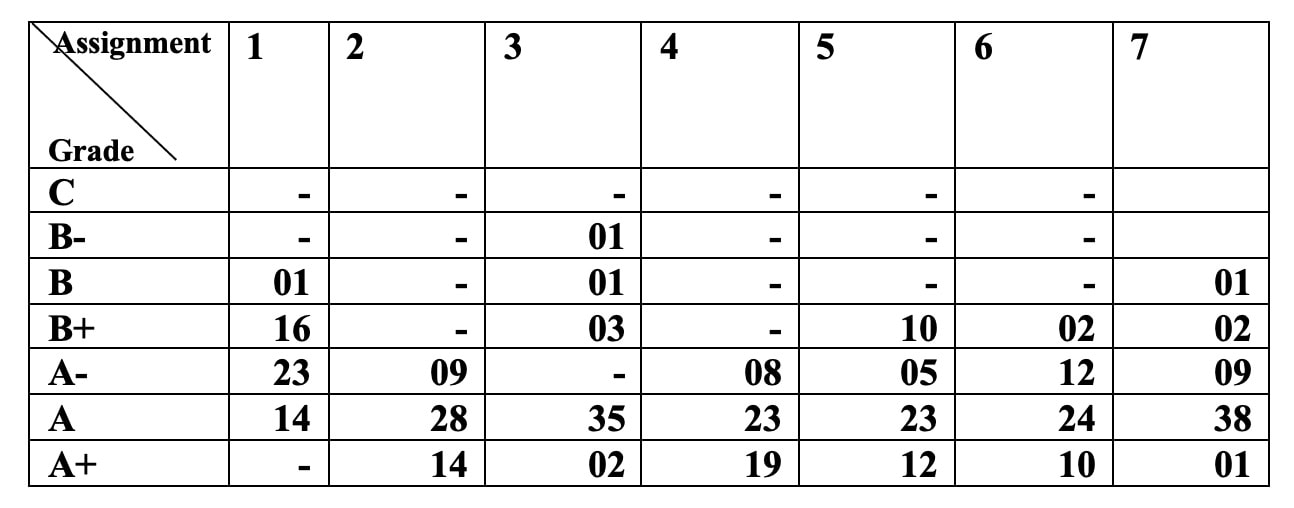
 RSS Feed
RSS Feed
